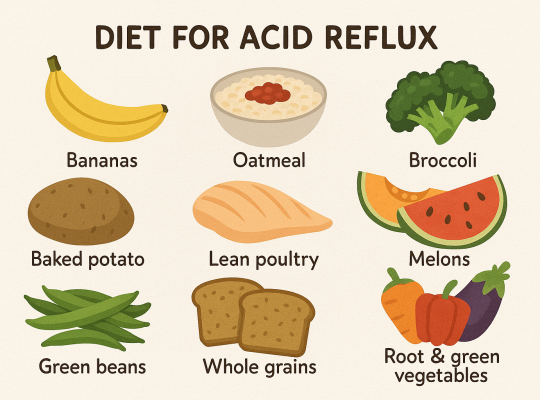In our fast-paced world, sleep often takes a backseat, overshadowed by looming deadlines and endless to-do lists. Yet, the true essence of wellness lies in those precious hours of shut-eye. Unlocking wellness means understanding the profound impact sleep has on our physical health, mental clarity, and emotional resilience. It’s more than just a nightly routine; it’s a cornerstone of vitality that influences every aspect of our lives. When we prioritize restful slumber, we harness the body’s innate ability to heal, rejuvenate, and recharge. From boosting the immune system to enhancing memory and mood, the benefits of a good night’s sleep are irrefutable. So, if you’re ready to elevate your well-being and embrace a healthier life, it’s time to delve into the crucial importance of sleep. Let’s explore how fine-tuning our sleep habits can unlock a path to a vibrant, balanced existence.
Understanding Sleep: The Basics
Sleep is a complex and dynamic state that is essential for our overall well-being. Despite its importance, many people don’t fully understand the intricacies of sleep and its profound impact on our health. The sleep cycle consists of several stages, each serving a unique purpose in the restoration and rejuvenation of our body and mind. Broadly, sleep is divided into two main categories: Rapid Eye Movement (REM) sleep and Non-Rapid Eye Movement (NREM) sleep. NREM sleep is further divided into three stages, each progressively deeper and more restorative. REM sleep, on the other hand, is characterized by vivid dreaming and plays a crucial role in cognitive functions such as memory consolidation and emotional regulation.
During the initial stages of NREM sleep, the body begins to relax, and brain activity starts to slow down. This phase prepares the body for the deeper stages of sleep, where significant restorative processes occur. As we transition into the deeper stages of NREM sleep, our body undergoes various physiological changes, including slower breathing, reduced heart rate, and decreased body temperature. These changes are critical for physical repair and growth, immune function, and overall health. The final stage of NREM sleep, known as deep sleep or slow-wave sleep, is particularly important for the body’s ability to restore and rejuvenate itself.
REM sleep, which usually occurs about 90 minutes after falling asleep, is equally vital. During this phase, brain activity ramps up, and we experience vivid dreams. REM sleep is essential for cognitive functions such as learning, memory processing, and emotional balance. It also plays a role in problem-solving and creativity. The interplay between NREM and REM sleep throughout the night ensures that we wake up feeling refreshed and ready to take on the day. Understanding these basics is the first step toward appreciating the crucial role that sleep plays in our overall health and well-being.
The Science of Sleep: How It Affects Your Body
The science of sleep reveals a fascinating interplay between various physiological processes that work together to maintain our health. One of the most critical functions of sleep is its role in cellular repair and growth. During deep sleep, the body releases growth hormones that aid in the repair of tissues and muscles, promote bone growth, and support the immune system. This is why adequate sleep is particularly important for athletes and individuals recovering from injuries.
Sleep also has a profound impact on our cardiovascular health. Consistent, restorative sleep helps regulate blood pressure and reduces the risk of developing cardiovascular diseases such as hypertension, heart attacks, and strokes. During sleep, the body undergoes periods of reduced heart rate and blood pressure, giving the cardiovascular system a much-needed rest. Disruptions in sleep patterns, however, can lead to increased stress on the heart, contributing to long-term health issues.
Furthermore, sleep plays a crucial role in regulating metabolism and maintaining a healthy weight. Lack of sleep can disrupt the balance of hormones that control hunger and appetite, such as ghrelin and leptin. Ghrelin, known as the “hunger hormone,” increases appetite, while leptin, the “satiety hormone,” signals fullness. Sleep deprivation leads to elevated ghrelin levels and reduced leptin levels, which can result in increased appetite and weight gain. In addition, poor sleep can lead to insulin resistance, increasing the risk of type 2 diabetes. Understanding the science of sleep underscores the importance of prioritizing quality rest for overall health.
The Mental Health Connection: Sleep and Emotional Well-Being
Sleep and mental health are intricately connected, with each influencing the other in significant ways. Adequate sleep is essential for maintaining emotional stability, cognitive function, and overall mental well-being. During sleep, the brain processes emotions, consolidates memories, and clears out toxins that accumulate during wakefulness. This nightly maintenance helps us manage stress, make decisions, and maintain a positive outlook on life.
Sleep deprivation, on the other hand, can have a detrimental impact on mental health. It is associated with an increased risk of developing mood disorders such as depression and anxiety. Lack of sleep can exacerbate symptoms of these conditions, leading to a vicious cycle where poor sleep contributes to mental health issues, and mental health issues further disrupt sleep. Chronic sleep deprivation can also impair cognitive functions such as attention, decision-making, and problem-solving, making it challenging to perform daily tasks effectively.
Moreover, sleep plays a crucial role in emotional regulation. REM sleep, in particular, is involved in processing and integrating emotional experiences. During REM sleep, the brain reprocesses emotional memories, which can help reduce the intensity of negative emotions and promote emotional resilience. Without sufficient REM sleep, individuals may find it harder to cope with stress and manage their emotions. Prioritizing sleep is, therefore, a key component of maintaining mental health and emotional well-being.
Sleep Deprivation: Risks and Consequences
The risks and consequences of sleep deprivation are far-reaching and can affect nearly every aspect of our lives. One of the most immediate effects of sleep deprivation is impaired cognitive function. Lack of sleep can lead to difficulties with concentration, memory, and decision-making, which can impact performance at work or school. It can also slow down reaction times, increasing the risk of accidents and injuries.
Chronic sleep deprivation has been linked to a range of serious health issues. It can weaken the immune system, making the body more susceptible to infections and illnesses. Long-term sleep deprivation is also associated with an increased risk of developing chronic conditions such as obesity, diabetes, cardiovascular disease, and even certain types of cancer. The body’s ability to regulate blood sugar and insulin levels is compromised by lack of sleep, which can lead to insulin resistance and an increased risk of type 2 diabetes.
In addition to physical health risks, sleep deprivation can have significant social and emotional consequences. It can lead to mood swings, irritability, and increased stress levels, which can strain relationships and reduce overall quality of life. Sleep-deprived individuals may also experience decreased motivation and productivity, affecting their professional and personal goals. Understanding the severe consequences of sleep deprivation highlights the importance of making sleep a priority for a healthier, more balanced life.
Sleep and Immune Function: Why Rest is Essential
Sleep is a critical component of a well-functioning immune system. During sleep, the body produces and releases cytokines, proteins that play a crucial role in immune response by combating infections and inflammation. Certain types of cytokines increase during sleep, especially during deep sleep stages, enhancing the body’s ability to fight off illnesses. This is why getting adequate sleep is particularly important when you’re feeling under the weather.
Sleep deprivation can compromise the immune system, making you more vulnerable to infections such as the common cold and flu. Studies have shown that individuals who do not get enough sleep are more likely to catch a cold virus when exposed compared to those who are well-rested. Moreover, chronic sleep deprivation can lead to a state of low-grade inflammation, which is associated with a higher risk of developing chronic diseases such as heart disease and diabetes.
The relationship between sleep and immune function also extends to the effectiveness of vaccines. Adequate sleep has been shown to enhance the body’s response to vaccinations by promoting the production of antibodies. This means that getting a good night’s sleep before and after receiving a vaccine can improve its efficacy. Recognizing the essential role of sleep in immune function underscores the importance of making rest a priority, not just for recovery but for overall health and disease prevention.
Sleep Hygiene: Tips for Better Sleep Quality
Improving sleep hygiene is essential for achieving better sleep quality and overall health. Sleep hygiene refers to the practices and habits that can help you get a good night’s sleep. One of the most important aspects of sleep hygiene is maintaining a consistent sleep schedule. Going to bed and waking up at the same time every day, even on weekends, helps regulate your body’s internal clock and can make it easier to fall asleep and wake up feeling refreshed.
Creating a relaxing bedtime routine can also significantly improve sleep quality. Engaging in calming activities such as reading, taking a warm bath, or practicing mindfulness meditation can signal to your body that it’s time to wind down. It’s important to avoid stimulating activities before bed, such as using electronic devices, as the blue light emitted by screens can interfere with the production of melatonin, the hormone that regulates sleep.
The sleep environment plays a crucial role in sleep quality as well. Ensuring that your bedroom is cool, dark, and quiet can create an ideal setting for restful sleep. Investing in a comfortable mattress and pillows can also make a significant difference. Additionally, limiting caffeine and alcohol intake, especially in the hours leading up to bedtime, can help promote better sleep. By adopting these sleep hygiene practices, you can create a conducive environment for restorative sleep and improve your overall well-being.
The Role of Sleep in Weight Management
Sleep plays a significant role in weight management and can influence eating habits, metabolism, and energy balance. Adequate sleep is essential for maintaining a healthy weight, as it helps regulate the hormones that control hunger and appetite. When you don’t get enough sleep, the balance of these hormones is disrupted, leading to increased levels of ghrelin, the hormone that stimulates appetite, and decreased levels of leptin, the hormone that signals fullness.
This hormonal imbalance can result in increased cravings for high-calorie, carbohydrate-rich foods and overeating, making it more challenging to maintain a healthy diet. Additionally, sleep deprivation can affect the brain’s reward centers, making unhealthy food choices more appealing. This can create a cycle where lack of sleep leads to poor dietary choices, which in turn can contribute to weight gain and obesity.
Moreover, sleep has a direct impact on metabolism and energy expenditure. During sleep, the body performs essential functions such as repairing tissues, building muscle, and regulating hormones that affect metabolism. Lack of sleep can slow down metabolism, making it harder for the body to burn calories efficiently. It can also lead to decreased physical activity due to fatigue, further contributing to weight gain. Recognizing the role of sleep in weight management highlights the importance of prioritizing restful sleep as part of a healthy lifestyle.
Sleep Disorders: Common Types and Treatments
Sleep disorders are conditions that disrupt the normal sleep pattern and can significantly impact overall health and quality of life. One of the most common sleep disorders is insomnia, characterized by difficulty falling or staying asleep. Insomnia can be acute, lasting for a short period, or chronic, persisting for months or even years. Treatments for insomnia often include cognitive-behavioral therapy for insomnia (CBT-I), which focuses on changing sleep-related behaviors and thoughts, as well as medication in some cases.
Sleep apnea is another prevalent sleep disorder, where breathing repeatedly stops and starts during sleep. This condition can lead to fragmented sleep and reduced oxygen levels in the blood, increasing the risk of cardiovascular problems. The most common treatment for sleep apnea is continuous positive airway pressure (CPAP) therapy, which involves wearing a mask that delivers steady air pressure to keep the airways open during sleep. Lifestyle changes such as weight loss and avoiding alcohol can also help manage sleep apnea.
Restless Legs Syndrome (RLS) is a neurological disorder characterized by an uncontrollable urge to move the legs, often accompanied by unpleasant sensations. These symptoms typically worsen in the evening and can disrupt sleep. Treatments for RLS may include medications that affect dopamine levels, iron supplements, and lifestyle modifications such as regular exercise and avoiding caffeine. Addressing sleep disorders through appropriate treatments can significantly improve sleep quality and overall health.
Creating a Sleep-Friendly Environment
Creating a sleep-friendly environment is essential for achieving restful and restorative sleep. The bedroom should be a sanctuary dedicated to sleep and relaxation. One of the key factors in creating a sleep-friendly environment is controlling the room temperature. A cool room, typically around 60-67 degrees Fahrenheit (15-19 degrees Celsius), is ideal for sleep, as it can help the body maintain a consistent temperature and promote deeper sleep.
Light exposure also plays a crucial role in sleep quality. Exposure to natural light during the day helps regulate the body’s internal clock, but artificial light in the evening can interfere with the production of melatonin. To create a sleep-friendly environment, it’s important to minimize light exposure in the bedroom by using blackout curtains or blinds and removing electronic devices that emit blue light. Dimming the lights in the evening can also help signal to your body that it’s time to wind down.
Noise control is another important aspect of a sleep-friendly environment. Reducing noise levels can help prevent disruptions and promote uninterrupted sleep. Using earplugs, white noise machines, or calming background sounds can help create a quiet and peaceful atmosphere. Additionally, investing in a comfortable mattress and pillows that support your preferred sleeping position can significantly enhance sleep quality. By optimizing the sleep environment, you can create the ideal conditions for restful and rejuvenating sleep.
Conclusion: Prioritizing Sleep for a Healthier Life
Prioritizing sleep is essential for unlocking wellness and achieving a healthier, more balanced life. Understanding the profound impact that sleep has on physical health, mental clarity, and emotional resilience underscores the importance of making restful slumber a priority. From boosting the immune system to enhancing memory and mood, the benefits of a good night’s sleep are irrefutable.
By adopting healthy sleep habits, such as maintaining a consistent sleep schedule, creating a relaxing bedtime routine, and optimizing the sleep environment, you can significantly improve sleep quality and overall well-being. Addressing sleep disorders and seeking appropriate treatments can also play a crucial role in achieving restful sleep. Recognizing the essential role of sleep in weight management, immune function, and mental health further highlights the importance of prioritizing sleep as a cornerstone of vitality.
As we navigate the demands of our fast-paced world, it’s crucial to remember that sleep is not a luxury but a necessity. By making sleep a priority, we harness the body’s innate ability to heal, rejuvenate, and recharge, paving the way for a vibrant and balanced existence. Embracing the importance of sleep and taking proactive steps to improve sleep quality can unlock a path to a healthier, happier life.










